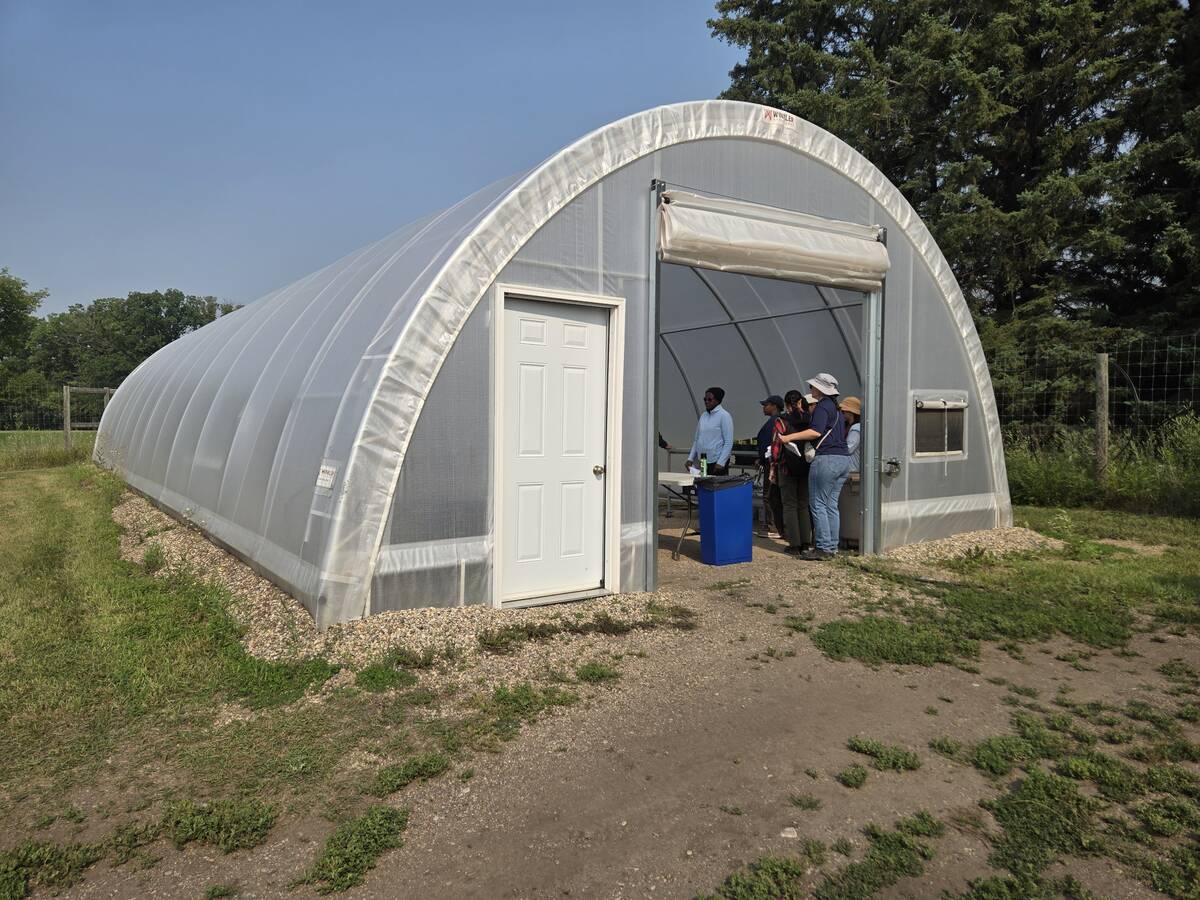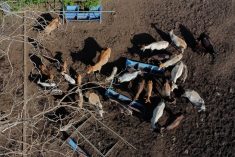Canada’s dairy industry breathed a sigh of relief Dec. 3 as the World Trade Organization ruled that international critics had not proved the Canadian dairy export program violates WTO rules.
The ruling released in Geneva overturns earlier WTO panel judgments that sided with complaints from the United States and New Zealand that Canadian exports were indirectly subsidized by government.
Canadian industry and government leaders said it gives a green light to farmers who want to continue or to increase their dairy production for sale to processors exporting products, now worth close to $400 million. Farmers producing for export do so outside the domestic quota system.
Read Also

Manitoba horticulture hits the books
The 2025 Horticulture School in Brandon covered tools to extend Manitoba’s vegetable and fruit growing season, horticulture crop agronomy and new research like peat sustainability
“We won, it is as simple as that,” Dairy Farmers of Canada executive secretary Richard Doyle said.
“The dairy industry will continue with business as usual,” added Canadian agriculture minister Lyle Vanclief in the House of Commons.
The American and New Zealand case hinged on a contention that because government regulation controls the domestic production and pricing system, its influence has the impact of illegally subsidizing exports.
The WTO appeals panel ruled that the case had not been proven, the complaint was dismissed and earlier rulings overturned. A judgment against Canada, upholding earlier panel decisions, would have effectively ended Canada’s attempt to develop an export industry outside the dairy supply management system.
It could also have allowed New Zealand and the U.S. to claim damages from Canada.
“This is the final decision in this case,” a senior Canadian government official told a background briefing Monday afternoon. “The U.S. and New Zealand have not succeeded in proving their case and so there is no question of retaliation.”
“This is good news for the industry,” said Saskatchewan dairy producer and DFC president Leo Bertoia in a News release
news.
However, the judgment does not guarantee an end to the four-year dispute.
Government officials conceded that if the critics want to launch a new case, they can.
“But anyone contemplating that should think long and hard and read this judgment carefully,” said a government trade official.
In fact, the judgment did not say Canada’s dairy export system complies with WTO rules. It said its critics had not proven that it did not.
New Zealand jumped on that statement to insist it will continue the fight.
“The appellate body made it clear that it was not finding that the Canadian measures were consistent with Canada’s WTO obligations,” New Zealand trade negotiations minister Jim Sutton said in Wellington, N.Z. “This is not a victory for Canada, far from it.”
He said New Zealand will “continue the legal challenge,” arguing that Canadian exports depress world dairy prices and cost the New Zealand dairy industry $80 million NZ annually.
In Ottawa, Doyle said he doubted the legal challenges would continue.
But he also questioned if the green light for exports will lead to a sharp increase in exports.
World prices are volatile and Canadian farmers will have to judge if it is worth it to produce milk for the lower-cost export market.
“I still think we will not see a real tilt to export,” said Doyle.
“It will still be a domestically oriented industry.”














